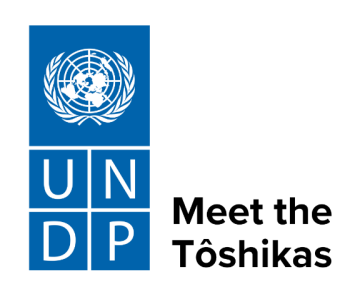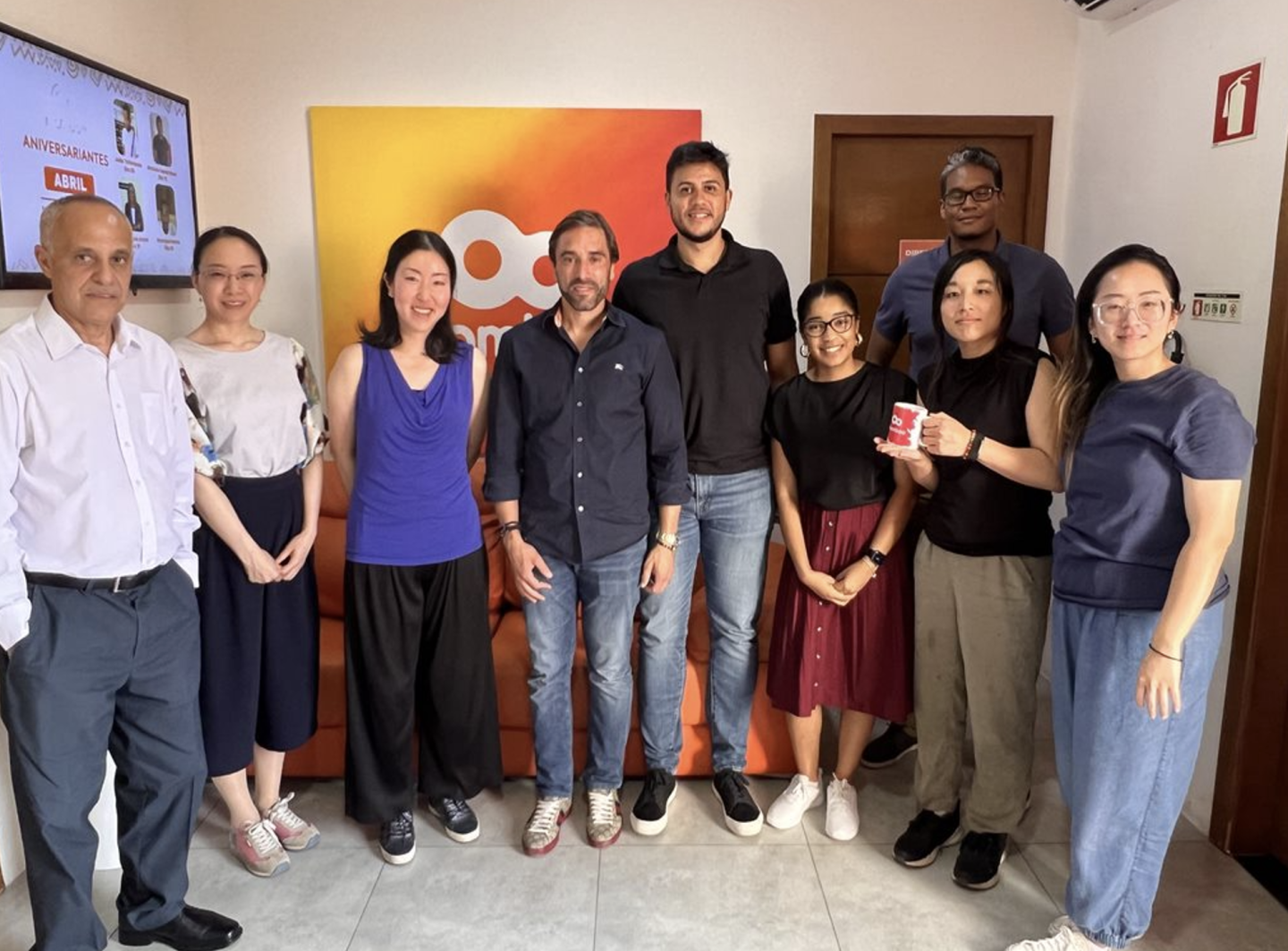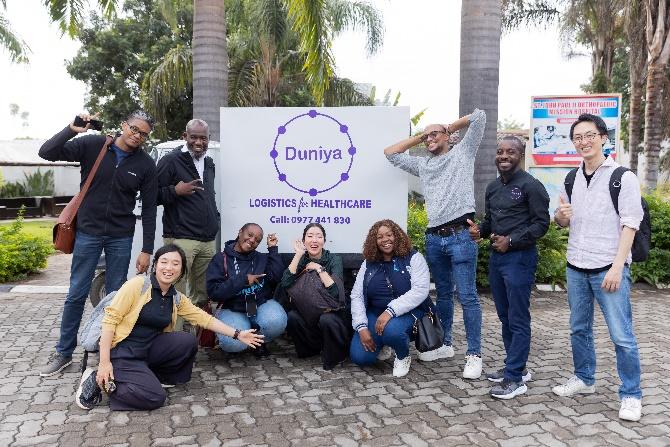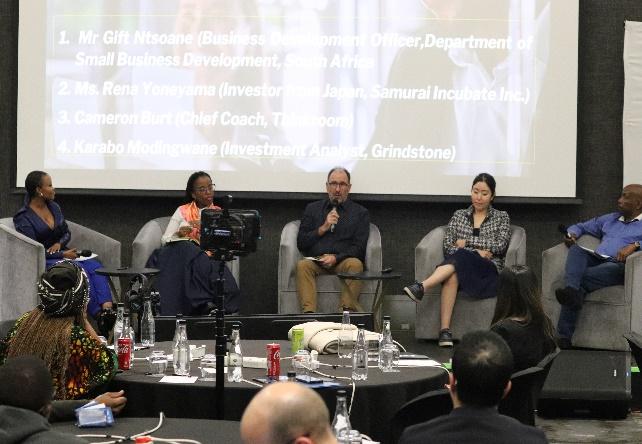News

The United Nations Development Programme (UNDP) is leading efforts to empower young entrepreneurs in Africa, providing vital policy guidance, technical support, and financial assistance. With funding from Japan's Ministry of Economy, Trade, and Industry (METI), UNDP is launching "Meet the Tôshikas," a pioneering project aimed at understanding and addressing barriers to growth and investment in African startup ecosystems.
Japanese investors, integral to such initiatives, bring not only financial backing but also expertise and networks, enriching Africa's startup landscape. Through "Meet the Tôshikas," UNDP aims to revolutionize investor engagement with African startups. In 2024, the project launches in Angola, South Africa, and Zambia.
To offer the investment and startup community, and concerned stakeholders across academia, policymaking, and business development, deeper insights into the investor landscape from a first-hand information point of view, we conducted interviews with two proven investors participating in the Meet the Toshikas project.
This is part one of our interviews with the two investors participating in the UNDP Meet the Toshikas project.
To catch up on part two, please click here.
・Meet Samurai Incubate Africa

Ms. Rena Yoneyama, Managing Partner, Samurai Incubate Africa
One of the investors, Samurai Incubate Africa, is a Tokyo-based venture capital firm that focuses on investing in African startups. Since 2009, Samurai Incubate has established nine funds across ten countries, investing in 248 startups and achieving successful exits with 112 ventures. We had the privilege of interviewing Managing Partner Rena Yoneyama to gain critical insights into their investment criteria and strategies.
Samurai Incubate Africa has been an instrumental partner in the Meet the Toshikas (MTT) program playing multiple roles in the process. Samurai Incubate participates as a judge at the pitch event which results in the selection of the top 6 startups; joins field trips to engage with startups and ecosystem players such as accelerators, financial institutions, and government agencies in all three countries; and provides proven insights and advice on investment readiness. Samurai was represented by Ms. Rena Yoneyama, Managing Partner at Samurai Incubate.
The most attractive and unique feature of this program is that investors are involved in the entire process from startup selection to investor matching, reflecting their expertise as investors from startup selection. We believe that the knowledge of investors is very important to improve the investment establishment of startups.
Please enjoy the interview!
Q. What motivated you to participate in the Meet the Toshikas project in Africa?
I have been regularly visiting the African continent to connect with founders and startups, particularly in Nigeria, Kenya, and Egypt ecosystems. It's been a valuable experience, and I see Africa as a significant expansion opportunity. Exploring the startup scenes in Zambia and Angola are particularly intriguing. We've already been engaged with South Africa's ecosystem for some time now, having invested in one startup. So, it's definitely an excellent expansion opportunity for us.

A startup founder demonstrates business operations to Ms. Yoneyama and others during the Meet the Toshikas Field Trip to Luanda, Angola
Q. What criteria do you value the most when selecting African startups to invest in?
When evaluating African startups for investment, several key criteria come into play. Firstly, industry knowledge and experience are paramount. In markets like Japan, even new graduates can find success if their solution resonates with the market. However, in Africa, success isn't as straightforward. Building strong relationships and networks is crucial, as it's often the deciding factor in a startup's trajectory. Understanding the specific challenges and nuances of each market is essential for success.
Secondly, the integrity and trustworthiness of the founder are critical. Trust is fundamental in the investor-startup relationship, which often spans over a decade. Integrity issues, such as exaggerated numbers or misleading information, erode trust and can hinder long-term collaboration.
Lastly, adaptability and understanding of the market are vital. Each African country and/or city presents unique challenges and opportunities. Foreign investors with impressive backgrounds may struggle if they fail to grasp the intricacies of the local market. It's essential to discern genuine commitment and understanding from superficial claims.
In summary, industry expertise, founder integrity, and market understanding are the primary criteria we consider when evaluating African startups for investment.
Q. What unique challenges and opportunities come to mind when thinking about African startups?
When considering African startups, we face distinct challenges and opportunities compared to Japanese ventures. For Japanese VCs investing in domestic startups, the process is relatively straightforwrd due to familiarity with the country and market dynamics. Supporting portfolio companies involves offering hiring, sales opportunities, and strategic guidance, which align with our understanding of the local landscape.
However, for African-focused funds like ours, diversifying risk often means investing across multiple countries, each with its own unique market intricacies and networks. While this strategy spreads risk, it also presents challenges in understanding various markets comprehensively. African founders typically understand their markets and problems better than foreign investors, making it challenging for outsiders to provide hands-on support or strategy.

Ms. Yoneyama and other groups of investors visit Mamboo, an e-commerce startup.

A start-up demonstrates a product to Ms. Yoneyama and Yannick of DFP
Moreover, the macroeconomic and fundraising environments in Africa carry significant risks, including sudden regulatory changes and currency depreciation. The dependency on external funding exacerbates these challenges, as the influx and withdrawal of global investment directly impact African startups' growth trajectories, especially concerning revenue conversions to USD or EURO.
Despite these challenges, numerous opportunities abound in Africa's emerging economies. Advancements in soft and hard infrastructure, even amid the COVID-19 pandemic, reflect the continent's potential for growth. Startups that identify and address pressing needs while navigating these trends can scale significantly.
Also, some African founders excel at expanding globally, attracting investments from international players and even securing acquisitions or going public. This globalization trend offers promising prospects for African startups to collaborate with Japanese companies, leveraging shared knowledge and experiences for mutual benefit.
While African startup ecosystems face formidable challenges, they also present immense opportunities for growth and collaboration, both locally and globally.
Q. Can you share any success stories or notable experiences from your involvement in supporting African startups?
One notable success story involves a Nigerian company that we invested in as the first institutional investors. They had the opportunity to visit Japan last year through an invitation from JETRO. During their visit, they met with several Japanese companies to explore potential collaborations. Subsequently, some of these collaborations materialized into partnerships. And the company secured investment from two Japanese investors in the subsequent funding round.

Ms. Yoneyama with other MTT delegates visit Duniya Healthcare

Ms. Yoneyama joins the MTT panel session in South Africa
However, I believe it's important for investors to remain humble. While we provide support, it's the founders and their teams who drive the success of the startups. I refrain from attributing a startup's success solely to my support. In Africa, investors play a small part in the overall success story. While we strive to support startups to the best of our ability, the founders are the ones executing business operations on the ground.
It's essential for investors to recognize that most of the work is carried out by the founders. Sometimes, investors may claim credit when companies go public or get acquired, but the founders may not even be aware of their (investors) involvement. Therefore, I prefer to maintain humility and avoid public platforms such as social media and panels.
Q. Is there a recent trend in the African ecosystem that makes you excited?
The current environment poses challenges for everyone involved. During the heightened market activity in 2021, we witnessed unrealistically high valuations. Many founders and investors were focused more on raising funds rather than establishing real businesses. However, the landscape has shifted. In today's market, raising funds without a solid business foundation is nearly impossible.

Ms. Yoneyama (third from right) visited a startup in South Africa with other delegates.
Founders are now recognizing that building a viable business is paramount. While fundraising remains an important skill for founders, it's not the ultimate goal for startups. Providing excellent solutions, services, and products to customers willing to pay for them is of utmost importance.
This shift in focus excites me. Founders are increasingly dedicated to building real businesses rather than playing the fundraising game. Moreover, valuations have become more reasonable, which is a positive development in the ecosystem.
Q. What advice would you give to aspiring entrepreneurs and startup founders who want to attract investment from Japan?

Ms. Yoneyama engages with a founder in Zambia.
The key advice for entrepreneurs seeking investment from Japan is to focus on building businesses that people genuinely want to use. Japanese venture capitalists and companies prioritize substance over mere proposals. They are cautious investors who prefer to invest in startups with tangible business models.
Japanese companies place a high value on integrity and trust. Decision-making processes can be lengthy as they seek to establish a strong foundation for collaboration. Therefore, founders should be prepared for thorough due diligence processes.
Once Japanese companies decide to invest, they tend to commit fully to the partnership. Moreover, if they recognize the potential for scalable business, they may even consider acquiring the startup in the future.
So, the best way to attract Japanese investments is by building real businesses with products or services that address genuine market needs. This approach aligns with the values and expectations of Japanese investors and companies.
Q. How would your participation in this program differ from other African programs that you’ve participated in or that already exist?
I must clarify that I haven't actively participated in programs as a mentor or similar roles. My background involves nearly a decade of business experience, primarily focused on Africa. Over the years, I've traveled to approximately 20 countries across the continent. However, I still consider myself somewhat of a foreigner. When engaging with founders, I often find myself lacking detailed knowledge about specific markets and industries.
For instance, while I've been to Cameroon around a decade ago, I may not be well-versed in the current fintech landscape there. I've mainly concentrated my efforts in Nigeria over the past three years, where the dynamics of the market differ significantly from other African countries like Cameroon or Kenya. In Nigeria, for instance, the utilization of mobile money differs drastically from that in Kenya.
Recognizing these distinctions, I realize the importance of humility in Africa-focused investment. Being an expert in a specific field or market is crucial for effective venture investment. Therefore, I believe that investors should remain grounded and acknowledge the breadth of knowledge required to navigate the diverse African landscape. As such, I haven't actively participated in programs in the past. Participating in this program allows me to continue humbly exploring new African markets and getting to know better the distinctions between ecosystems.

Ms. Yoneyama in a group photo with startup founders and other Japanese investors in South Africa

 Locations
Locations